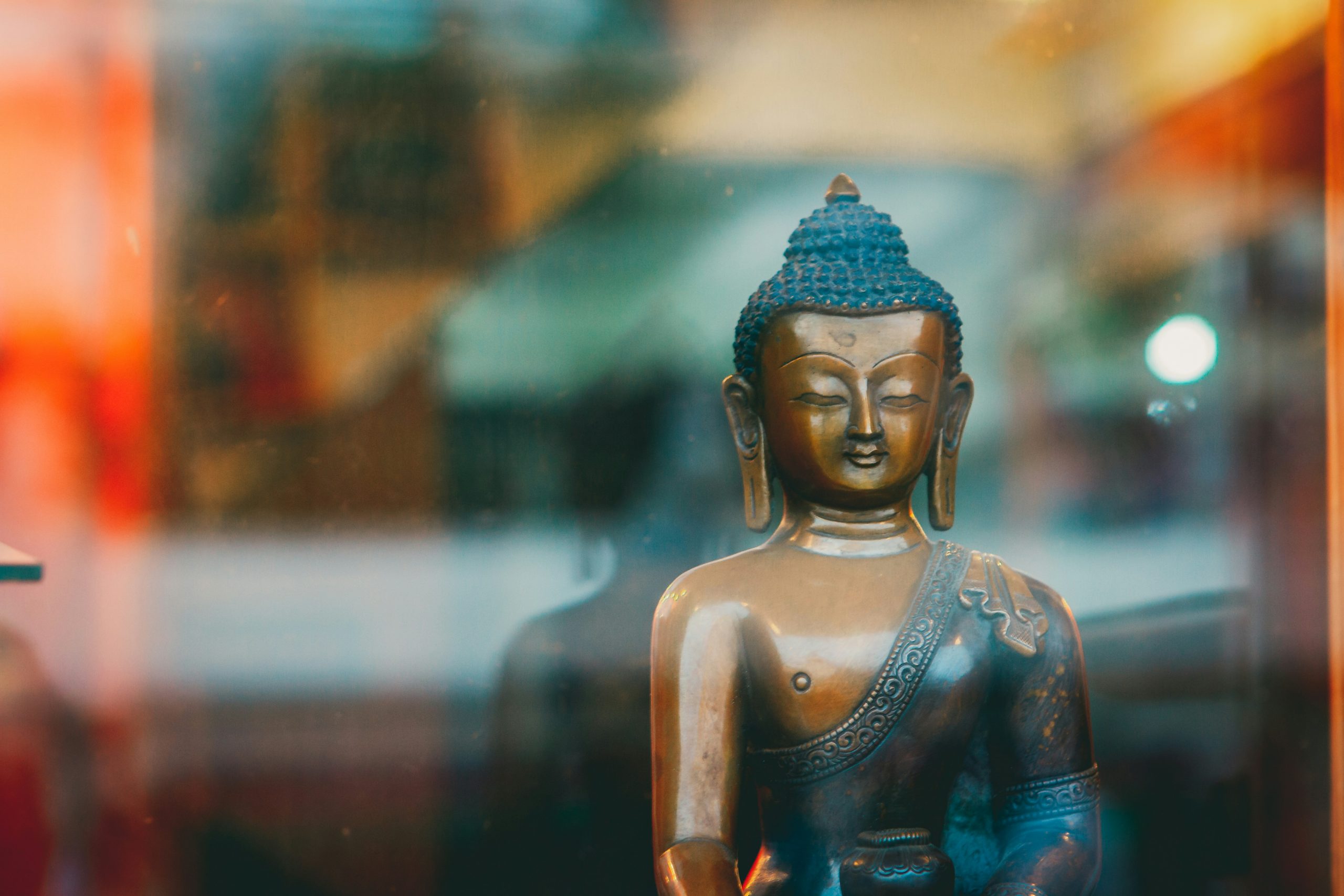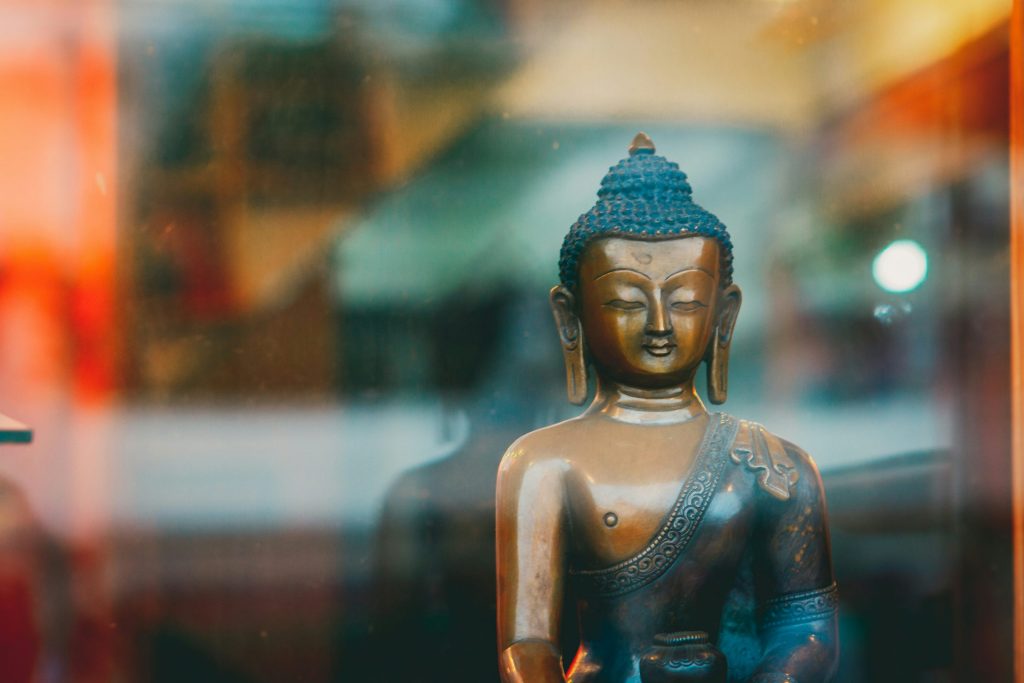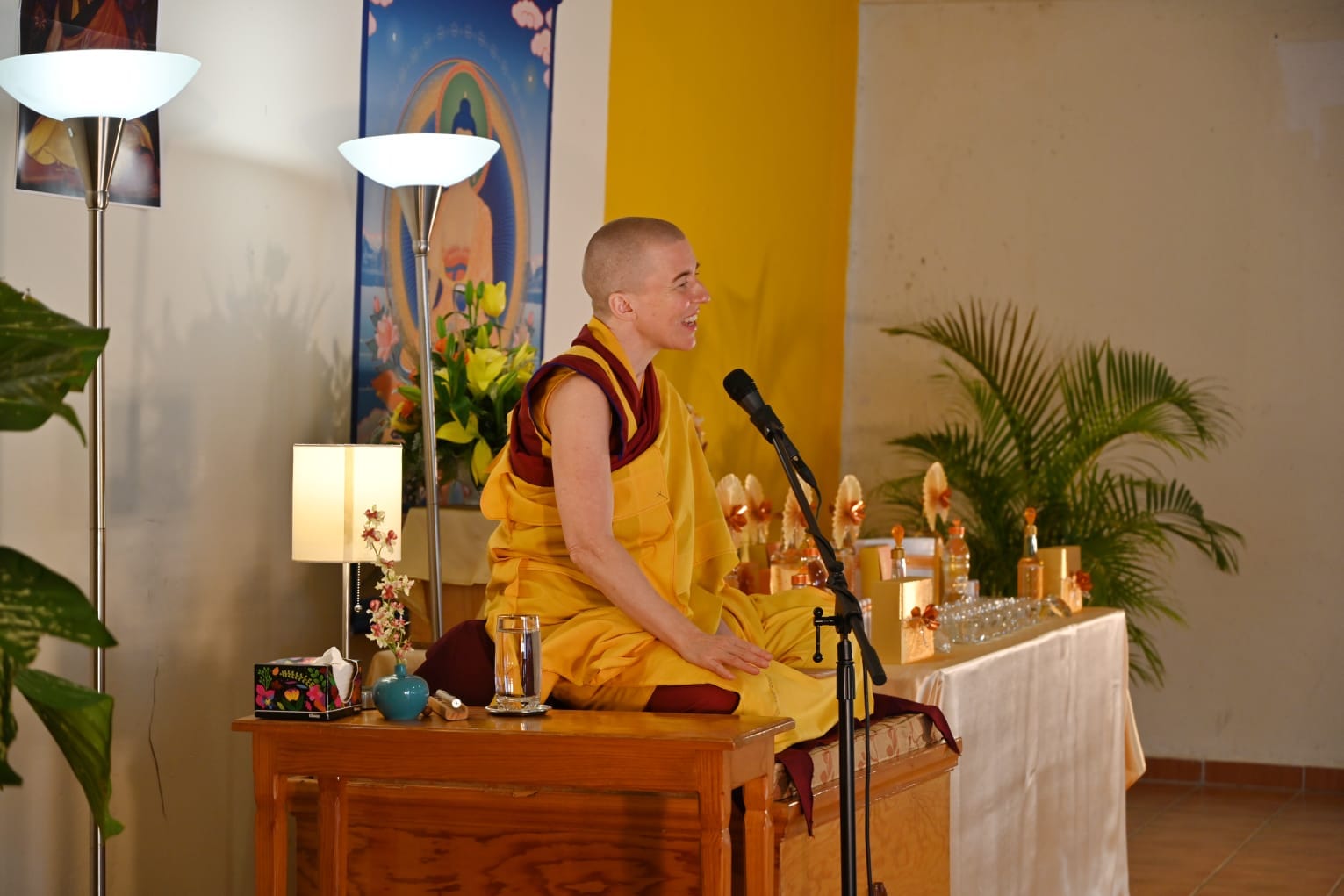The Power of Recollecting the Buddha
An essay and practice on embodiment The post The Power of Recollecting the Buddha appeared first on Tricycle: The Buddhist Review.

An essay and practice on embodiment
By Scott Tusa Aug 04, 2024 Photo by Raimond Klavins
Photo by Raimond KlavinsWhether you’re a Buddhist practitioner, a meditator, someone interested in the topic, or you just happened upon this writing, I believe I can make the case that recollecting the Buddha holds value for you.
Often, recollecting the Buddha gets relegated to a purely religious practice. But when we really look at the meaning and driving force behind it, it’s not only religious; it’s simply a way to remember a potential we all have within.
Basically, remembering or recollecting the Buddha is a way to remember our own potential for awakening and freedom.
I want you to do a quick exercise or visualization: When you think of the Buddha, whether it’s a beautiful image, a statue, a teaching, or whatever pops into your mind, what happens to you? What happens to your energy, your body, and your mind?
Remembering or recollecting the Buddha is a way to remember our own potential for awakening and freedom
What I tend to notice in myself, and what others often share with me, is that they feel a sense of peace. For most of us, the Buddha represents simplicity, peace, and maybe even calmness. For those who have studied the dharma, he is also a symbol of awakening and our own potential for inner freedom. I understand that some people may have different experiences when they imagine the Buddha. While that’s true, I believe that, for most of us, the image or symbol of the Buddha represents something peaceful, something we desire.
After all, our lives are often stressful. We struggle with overwhelm, and if we’re honest, we don’t always know how to deal with what comes up. The Buddha recognized this as part of life, and I believe the symbol of the Buddha represents someone who resolved that to some degree. Buddhists believe he resolved it completely, meaning he resolved the fundamental stress of existence.
The actual resolution itself, or awakening, is a vast topic with numerous teachings and a whole path dedicated to it. However, when we remember or recollect the Buddha, it’s a powerful symbol of resolution and reminder of our own inner potential.
Let’s delve deeper into the meaning of the word “Buddha.” The Tibetan word for Buddha is “Sangye,” which can be broken down into two parts, representing two aspects of what it means to be awakened.
The first part, “sang,” means “to purify” or “cleanse.” So, literally, it means that a Buddha’s consciousness has been purified or clarified, removing confusion, stress, and suffering. This also includes destructive habitual patterns and emotions.
The second part, “gye,” is a bit more nuanced. It means “expansion” or “blossoming.” When we remove confusion and suffering, it’s not that we’re left with nothing. Instead, all enlightened qualities are fully bloomed, such as unconditional compassion, love, and kindness. So a Buddha, having cleared their confusion, has expanded into boundless compassion, love, and activity that can benefit others in extremely profound ways.
When we recollect or remember the Buddha, we’re not just recalling the achievements of a revered historical figure. We’re also remembering that many beings have awakened throughout history, across various cultures and life circumstances. This signifies that awakening is not something reserved for a select few; it’s a potential within us all.
By recollecting the Buddha, we tap into this potential and become inspired to work on ourselves. We learn from the dharma, meditate, and strive to live differently. We remember that we don’t have to settle for suffering or stagnation. We can change for the better.
Ultimately, recollecting the Buddha is about remembering our most profound potential, the potential to transform ourselves and have a lasting and meaningful impact on the world around us.
This powerful practice transcends religious boundaries; anyone can benefit from understanding the symbol and historical significance of the Buddha, and realizing that this word extends beyond one person to encompass the potential within all of our minds.
Recollecting the Buddha is about remembering our most profound potential, the potential to transform ourselves and have a lasting and meaningful impact on the world around us.
In Mahayana Buddhism, the concept of buddhanature emphasizes that every being possesses the inherent potential for awakening. Beneath the surface of our perceived limitations, suffering, and unhappiness lies a pure, clarified nature. By connecting with this essence, we can blossom into limitless compassion, love, and skillful action, interacting with others and the world in a more free, open, and fluid way.
Here’s a simple embodiment practice you can try on your own.
When you wake up, dedicate a moment to remembering the Buddha, either the historical figure or another enlightened being that resonates with you, such as Tara, Avalokiteshvara, or any symbol of enlightenment that inspires you. Recognize this as an invitation to integrate awakening into your day. Just as waking up symbolizes emerging from the darkness of sleep, this practice reminds you of your potential and motivates you to dedicate energy to your spiritual journey. Hold the image of the Buddha in your mind as you move into your day or practice, carrying that energy with you.May this exercise open a world of fresh and new possibilities for you.
♦
This article was adapted from a piece that originally appeared on Scott Tusa’s blog.
![]()
Thank you for subscribing to Tricycle! As a nonprofit, we depend on readers like you to keep Buddhist teachings and practices widely available.
This article is only for Subscribers!
Subscribe now to read this article and get immediate access to everything else.
Already a subscriber? Log in.

 JimMin
JimMin 































